Don't let tire troubles add to the challenges of truck driving. Rolon Mobile Truck Repair comes to you with 24/7 tire repair and replacement services. We offer a wide selection of semi-truck and trailer tires to keep you moving safely and efficiently. Explore our selection below!
Thinking about getting your commercial driver's license (CDL)? Wondering if truck driving could be for you? Let’s tour the challenges and rewards of a truck driving career.
There's no denying the allure of the open road. Truck drivers see more of the country through their daily job than most others, playing a vital role in keeping our economy rolling. But is truck driving a hard job? The answer, like many things in life, is that it depends.
This guide dives into the realities of a career in truck driving, helping you decide if becoming a truck driver aligns with your skills and interests. We'll explore the challenges, like long hours and being away from home, alongside the rewarding aspects of this in-demand profession.
Pros and Cons of a Trucking Career
Before diving in, let's consider the pros and cons of a truck driving career:
Pros of a Trucking Career:
- High Earning Potential: Experienced truck drivers, especially owner-operators, can earn competitive truck driving salary and benefits.
- Job Security: The trucking industry plays a vital role in the supply chain and shows no signs of slowing down.
- Freedom & Adventure: Owner-operators enjoy greater autonomy over their schedules and routes.
- Be Your Own Boss: Owner-operators enjoy greater autonomy over their schedules and routes.
Cons of a Trucking Career:
- Long Hours: Truckers often work long hours and may be away from home for extended periods.
- Physically Demanding: Lifting heavy objects, maneuvering large vehicles, and frequent sitting can take a toll.
- Strict Regulations: Drivers must adhere to strict hours of service (HOS) regulations and safety protocols.
- Unpredictable Schedule: Traffic delays, bad weather, and unforeseen circumstances can impact schedules.
Is Becoming a Truck Driver Hard?
Obtaining a commercial driver's license (CDL) requires passing written and practical exams. However, CDL training programs can equip you with the knowledge and skills you need to succeed. Is becoming a truck driver hard? The process can be challenging but manageable with the right preparation.
What are the Challenges of Truck Driving?
Beyond obtaining a CDL, the daily life of a truck driver presents its own unique challenges. Let's explore some of the common ones:
- Those Long Hours and Time Away From Home: Long-haul truckers may spend weeks on the road, missing family and social events.
- Stressful Driving Conditions: Traffic congestion, tight deadlines, and unpredictable weather can add stress to the job.
- Isolation and Loneliness: Drivers often spend long stretches alone on the road, which can be isolating.
The Reality of Long Hours
While the notion of freedom on the open road is appealing, the reality of long hours is a significant factor for many truck drivers. Federal regulations limit driving time to 11 hours per day and 70 hours per week, but even within these restrictions, company drivers often find themselves putting in long shifts. This can lead to fatigue, which is a major safety concern in the trucking industry.
Isolation and Loneliness
For many truck drivers, isolation and loneliness can be a significant challenge. Long stretches on the road, away from family and friends, can take a toll on mental health. While technology has made it easier to stay connected, nothing can replace face-to-face interactions.
Dealing with Traffic and Road Conditions
Navigating traffic and dealing with various road conditions can be stressful and time-consuming. Congestion in major cities, inclement weather, and road construction can disrupt schedules and increase the risk of accidents.
Dealing with Regulations and Paperwork
Truck drivers must comply with a complex set of regulations, including hours of service, safety standards, and weight restrictions. This can be time-consuming and stressful, especially for owner-operators who are responsible for managing their own paperwork.
The Rewards of Truck Driving
Despite the challenges, truck driving offers many rewards:
Financial Stability
- High Earning Potential: Experienced truck drivers, especially those with specialized skills like hazmat or refrigerated transport, can command higher truck driving wages.
- Bonus Opportunities: Many trucking companies offer bonuses for safe driving, on-time deliveries, and other performance metrics.
- Overtime Pay: Truck drivers often work overtime hours, which can significantly boost their earnings.
- Retirement Benefits: Many trucking companies offer retirement plans, including 401(k)s or pension plans.
Independence
- Flexibility: Owner-operators have the freedom to choose their routes, schedules, and customers, offering a high degree of calendar flexibility.
- Control: Truck drivers have a sense of control over their work environment and can make decisions that impact their income and lifestyle.
- Autonomy: The open road and the ability to work independently can be appealing to many individuals.
Travel and Adventure
- See the Country: Truck drivers get to explore different parts of the United States, experiencing diverse landscapes, cultures, and attractions.
- Meet New People: Interacting with people at truck stops, loading docks, and other locations can provide opportunities for social interaction and networking.
- Discover New Places: Truck drivers can take advantage of their downtime to visit nearby attractions, explore local towns, and experience different ways of life.
Sense of Accomplishment
- Essential Role: Truck drivers play a vital role in the economy by transporting essential goods across the country.
- Contribution: Knowing that their work is essential to keeping the supply chain moving can provide a sense of purpose and satisfaction.
- Problem-Solving: Overcoming challenges on the road, such as traffic, weather, or mechanical issues, can be rewarding.
Career Advancement Opportunities
- Specialized Roles: Truck drivers can specialize in areas like hazmat, refrigerated transport, or heavy haul, which can lead to higher-paying jobs.
- Management Positions: Experienced truck drivers may have opportunities to move into management roles within trucking companies.
- Entrepreneurship: Some truck drivers choose to start their own trucking businesses, becoming owner-operators.
While these benefits are certainly motivating factors, the following list can assist truck drivers of any experience to act and feel better on the job.
Tips for Success in Truck Driving
- Stay Healthy: Maintain a healthy diet, exercise regularly, and get enough sleep.
- Stay Organized: Keep your paperwork and records in order to avoid fines and penalties.
- Build a Strong Support Network: Connect with other truck drivers and maintain relationships with family and friends.
- Learn to Manage Stress: Practice relaxation techniques, such as meditation or deep breathing.
- Continuously Improve Your Skills: Take advantage of training opportunities to stay up-to-date on industry best practices.
Bonus: Ready to Explore Further?
Researching trucking companies, CDL training programs, and the trucking industry in general is a great first step. Talking to current truck drivers can also offer valuable insights. Look for trucking groups and chats online to aid your “tidepool” of targeted opinions.
Is Truck Driving a Hard Job Conclusion
Is truck driving hard? The answer is both yes and no. It's a demanding job with its own set of challenges, but it can also be rewarding and fulfilling for those who are passionate about the open road. By understanding the realities of the job and taking steps to manage the challenges, you can increase your chances of success in this demanding yet rewarding career. If you enjoy driving, are comfortable with long hours, and thrive in an independent environment, truck driving might be a great fit for you.
Whether truck driving is "hard" ultimately depends on your individual strengths and goals. We hope this guide has helped you explore the possibilities!
Keep on Trucking!
Now that you've learned how hard the trucking life truly is, can you imagine the hard work your truck puts it everyday? Things break, that's just the way it is, luckliy Rolon Mobile Truck Repair is here to save you time and money with our on-site mobile repair services. Contact us today for your next repair and keep your rig rolling safely and efficiently!
FAQs About Truck Driving Jobs
Is truck driving a hard job?
Yes, truck driving can be a challenging job. It involves long hours, time away from home, and dealing with unpredictable road conditions, traffic, and strict regulations like hours of service. Truck drivers often face physical demands such as maneuvering large vehicles and lifting heavy loads. However, the rewards include job security, independence, and the opportunity to see different parts of the country. While truck driving is demanding, it can also be rewarding for those who enjoy the open road and working independently.
How hard is it to get a truck driving job?
Getting a truck driving job requires obtaining a commercial driver's license (CDL), which involves passing written and practical exams. CDL training programs help prepare candidates with the necessary skills and knowledge. Once licensed, the trucking industry offers many job opportunities, as there's high demand for drivers, especially in specialized roles like long-haul, hazmat, or refrigerated transport. While there are challenges in obtaining the CDL, the overall demand for truck drivers makes getting a job in the field achievable with proper training.
How many truck drivers are in America?
As of recent statistics, there are over 3.5 million truck drivers in America. The trucking industry plays a crucial role in the U.S. economy, with truck drivers transporting goods across the country, ensuring the supply chain remains operational. This large workforce highlights the essential nature of the truck driving profession.
What does a truck driver make?
The average truck driver salary can vary depending on experience, location, and specialization. In general, truck drivers can make between $45,000 to $70,000 per year, with owner-operators and specialized drivers, like those in hazmat or refrigerated transport, earning more. Factors like overtime pay, bonuses, and the number of hours worked also affect a driver’s total earnings.
What does a truck driver job entail?
A truck driver job entails operating large commercial vehicles to transport goods over short or long distances. Drivers are responsible for delivering cargo on time while adhering to safety regulations, including managing hours of service and ensuring the vehicle's load complies with weight limits. The job involves navigating various road conditions, completing paperwork, and, for owner-operators, managing their own schedules and maintenance. Drivers may work for trucking companies or operate independently, often spending long periods on the road, away from home.





